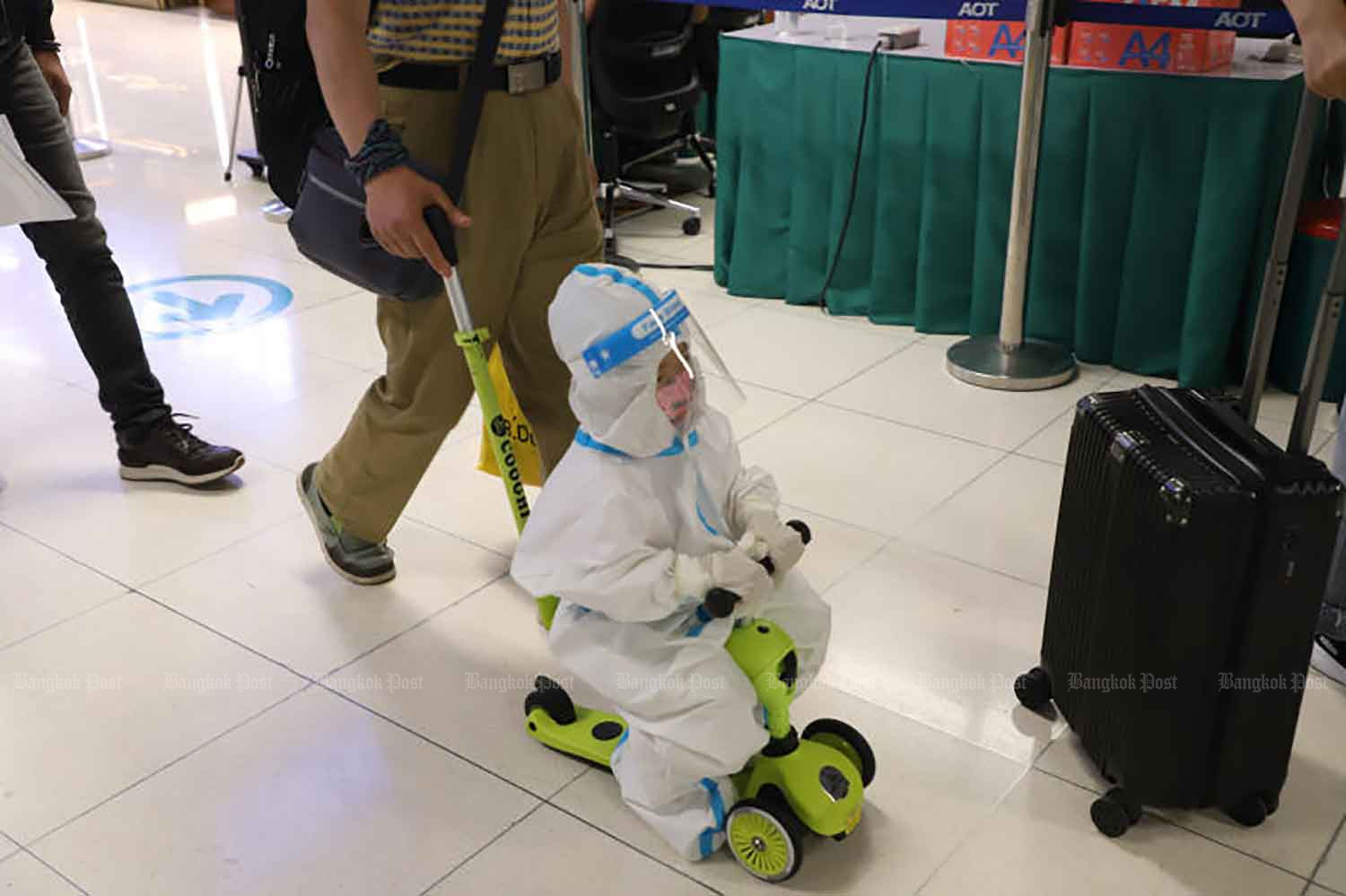
The Public Health Ministry will consider lowering its Covid-19 alert level this week as daily caseloads have continued to fall.
Chakrarat Pittayawonganon, director of the epidemiology division at the Department of Disease Control, said on Monday that the alert is currently maintained at Level 3, with a focus on warning the high-risk "608'' group and those who have not received booster shots of Covid-19 vaccines against visiting high-risk venues such as night entertainment establishments.
The 608 group comprises people aged 60 and older, those with underlying conditions and pregnant women.
However, the ministry will consider lowering the alert to Level 2 this week and decide which provinces will be assigned Level 2 status, Dr Chakrarat said.
He further said the number of patients with pneumonia, patients dependent on ventilators and the number of new fatalities is declining at a slow pace.
A total of 882 patients with lung inflammation, 425 on ventilators and 26 deaths were reported on Monday.
Most new fatalities were people aged 70 years and older and over half of them were unvaccinated, Dr Chakrarat said, adding that it is important for the high-risk group to be vaccinated and receive booster shots to prevent the worst effects of the virus.
After schools nationwide resumed onsite learning at the start of the new academic year on May 17, infection rates detected in some schools are still low, he said.
However, it is still necessary to speed up vaccinations for students to lift the double dose and booster rates among them, he said.

"The overall [Covid-19] situation in Thailand is starting to ease. Therefore, Thailand will revise its report on daily infection numbers accordingly.
"From June 1, the daily report will shift to the number of symptomatic patients in hospital, seriously ill patients and patients on ventilators,'' Dr Chakrarat said, adding that the number of fatalities will still be updated daily.
He also stressed the need for staff at nightlife outlets to undergo antigen testing once a week to reduce the risk of transmission when they reopen for business tomorrow.
On May 20, the CCSA approved the reopening of such venues in 31 provinces from June 1 but they will still be required to close at midnight.
They include pubs, bars, karaoke bars, massage parlours and other nightspots.
The 31 provinces, with 14 reclassified as green zones in the Centre for COVID-19 Situation Administration's (CCSA) colour-coded Covid-19 situation zoning and 17 recognised as blue zones, will continue to be required to follow Covid-free setting measures set by the Ministry of Public Health.
Dr Chakrarat also said that it will no longer be necessary for private companies and businesses to hold weekly antigen testing for employees. Only those with symptoms will need testing.

